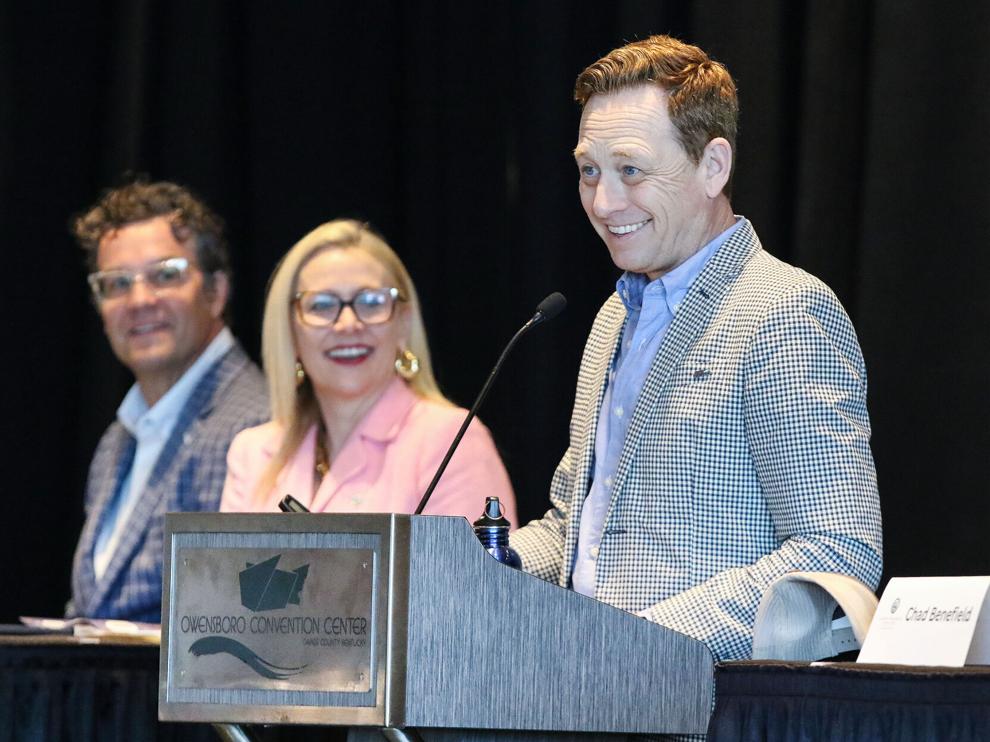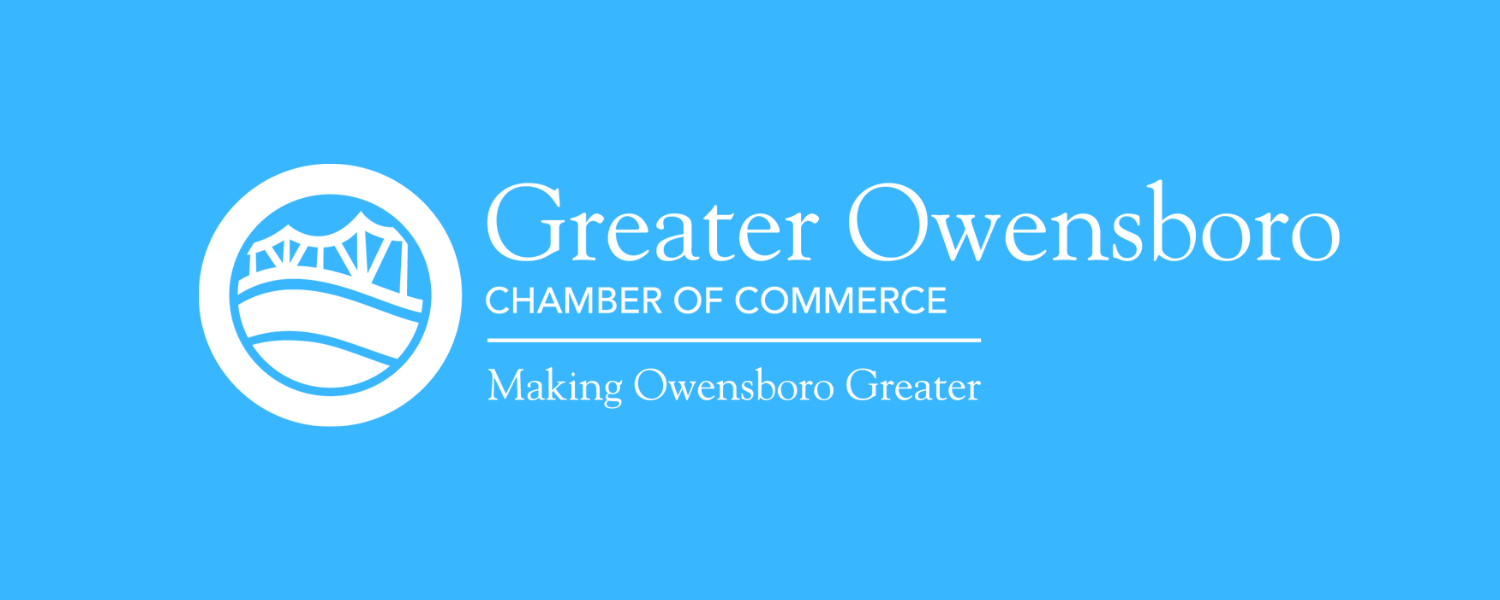Poet laureate touts importance of libraries

Kentucky Poet Laureate Silas House spoke to attendees at the Rooster Booster breakfast Thursday at the Owensboro Convention Center about the importance of libraries in the quest to gain knowledge and build community.
House, a nationally best-selling author, documentary producer and Grammy nominee from Whitley and Laurel counties, told the audience about the impact books and libraries played in his education.
“What I love most about the library is that it’s there for anyone who needs it, no matter what,” House said. “Back then, it was there for me, a boy whose family couldn’t afford to buy him all the books he wanted and needed, or drive to Lexington to go to the bookstore, a family who didn’t know how to direct him to the books he needed.”
House realized his love of books at an early age, enjoying classics such as “Old Yeller” and “Where the Lillies Bloom.” He started attending yard sales and flea markets with his aunt, who allowed him to broaden his horizons with books that had more mature storylines and themes, with Stephen King works “The Shining,” “Cujo” and “Christine” among his favorites.
“My aunt was not concerned with censorship, opposite of my strict fundamentalist parents,” House joked. Those books “broadened my vocabulary a lot with words I had never heard uttered in my staunchly religious community.”
House also read “Happy Days,” “Hardy Boys,” “Nancy Drew” and “The Waltons,” the latter of which he credits for him becoming a writer.
His reading adventures took another leap in maturity when he discovered “The Exorcist,” which he loved and feared at the same time.
“I was so terrified of that one I could only read during the daytime and was afraid to keep it in my room,” he said. “I hid it in my father’s tool shed, as I knew there was no way I could go to sleep with it in my room. I loved it, and it’s still one of my favorite books and movies. It’s a horror movie, but it’s really about belief and doubt, two of the things I write the most about.”
While House was naturally drawn to books, he said it was in the 7th grade that he learned to appreciate all the library offered. He said there were three keys to his revelation: a great English teacher, discovering the sanctuary of the library, and his family and friends realizing he was a budding artist.
“In my last year at Lily Elementary, I got a copy of “To Kill a Mockingbird,” House said. “This is the first book that completely swept me away. The characters felt real to me, the place felt real. I learned from this book. I learned there are different kinds of people in the world.”
House said he had never thought of the library as anything but a place to do research before his teacher allowed him to start spending recess in the library, which is when the school librarian changed his outlook — and he changed hers.
She was “used to kids coming in under the threat of teachers,” House said. “Once she discovered I not only loved books but had a deep reverence for them; she took me under her wing and directed me to text that I needed to crack my world wide open.”
The librarian pointed him to “The Outsiders,” the S.E. Hinton classic about boys craving community and understanding life.
The library didn’t just supply him with books, but also community.
“The library was a community that welcomed everyone and treated everyone the same,” he said. “And that means something to a whole lot of kids and people. I was welcomed into that level playing field of the library, and it made all of the difference for me. And I was fortunate that my parents, family and friends who guided me and encouraged me, even though people in my family didn’t read, they were proud that I did.
“We knew that gaining information was important, that books were important, that community is important, and that knowledge is the key to everything.”
House said any attempts to prevent people from acquiring knowledge — including banning books, which he said has been done with some of his books — is harmful to a community.
“It does’t matter if you’re conservative or liberal or whatever, banning happens on both sides of this,” House said. “We all know that not all books are meant for children. Of course they’re not. But that should be the decision of parents, not the government, whether local or national. We must never stand in the way of people gaining knowledge.
“I want to encourage all of you to help people foster knowledge any way you can, especially young people. We must build community by supplying knowledge.”
By Scott Hagerman Messenger-Inquirer

